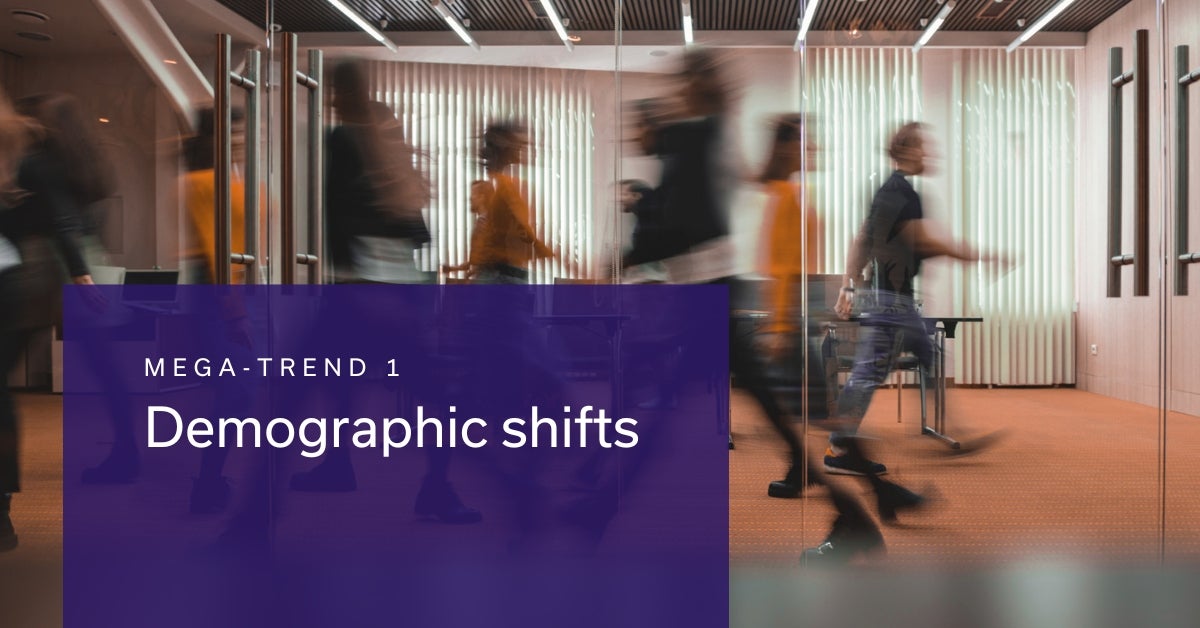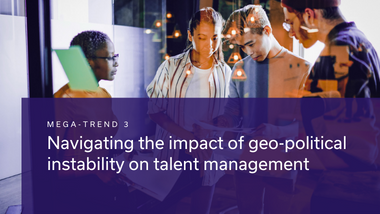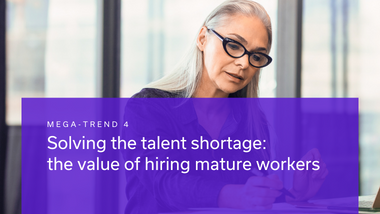Navigating the demographic shift: How to prepare now for the changing employee landscape
The changing face of the global workforce is posing new challenges to businesses large and small. As millennials replace baby boomers and the nature of work shifts, companies will have to change the way they source talent to adapt to the new landscape. After 500 years of continuous societal and technological development, the global population is now at an inflection point. Western economies peaked in the early 2010s, while birth rates have been falling worldwide since 1963.
That being said, the UK population is still growing and has been since the 1990s, but this growth is primarily due to positive net migration. For the last ten years, the net migration figure has sat at between 200,000 and 300,00 people a year entering the UK. Without this, the population would have been declining for 30 years, much like Portugal’s population which has been declining since 2008 due to negative net migration and fewer babies being born.
According to consultancy Mercer, the British workforce is expected to rise by just 820,000 by 2025, marking a dramatic decrease from the previous decade, when close to 2 million people entered employment.
Over the next ten years, 693 million baby boomers will retire - the largest, most experienced and most productive generation in history.
By 2025, 75% of the global workforce will be millennials and by 2050, a third of the Chinese population will be over 65. The shift will be from a large working-age population supporting a small elderly non-working population, to a smaller and shrinking working population supporting a larger and growing elderly population. So, how will these demographic shifts change the landscape of our global workforce?
Demographic shifts happen over time, so while the change will be gradual, it will be increasingly felt across the labour market. The pace at which this occurs will vary by market and sector, most likely impacting sectors which currently contain the highest percentage of older employees – i.e. public admin, healthcare and education.
Skills shortages already being reported on are here to stay. A report conducted by the Learning and Work Institute (L&W) in 2019 found that the UK skills shortage will cost the country £120 billion by 2030, with there being a shortfall of 2.5 million highly skilled workers and an oversupply of 8.1 million people with traditionally intermediate or low skills.
To bolster its declining talent pool, Japan has changed its law to attract descendants of Japanese citizens living abroad with attractive newly available long-stay visas and work permits. The scheme had been particularly successful in initially attracting around 320,000 Brazilians of Japanese descent to work in Japan, although that number has now decreased. China has also carried out similar measures.
Some companies may turn to short-term retraining and reskilling. Despite that, the search for skills will also continue to intensify, demanding the expansion of hiring horizons. Africa is undoubtedly an untapped talent resource, but will not remain so for long. African Leadership Academy cofounder Fred Swaniker, said in an interview with McKinsey & Company:
‘What I can tell you is that, number one, there’s an abundant source of talent in Africa. It’s the youngest population in the world…and [the people are] hungry; they’re willing to learn- all they need is an opportunity’.
What’s more, remote working will emerge as a talent attraction asset rather than as a mere aberration, with attributes such as flexibility, adaptability and creativity proving highly valuable in the new global market.
To find out how you can prepare for and thrive in this changing climate, download our report which explores the five mega-trends impacting talent and skills in 2023 and beyond. In this guide, Phill Brown, our Practice Director – Data Analytics & Insights, will offer predictions for the future, as well as actions that businesses can take to adapt to each mega-trend and operate effectively in the new world of work.













